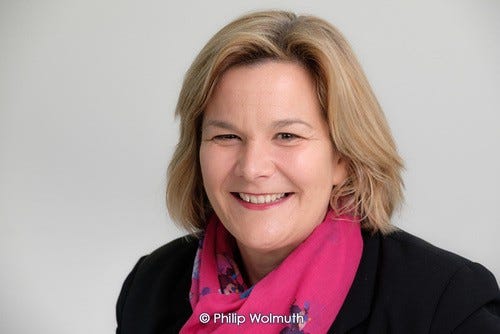Reducing Health Inequalities through the Regulators’ Pioneer Fund
In this blog, Dr Rosie Benneyworth, Chief Inspector of Primary Medical Services and Integrated Care, talks about how CQC is supporting innovation by GPs to reduce health inequalities in areas of deprivation, through better regulatory recognition and the sharing of best practice.

The Covid-19 pandemic has had a huge impact on health and social care. It has affected how care is delivered. It has also exposed and intensified many inequalities faced both by people who use services and people who provide care. Even before the pandemic there was a gap in healthy life expectancy between the richest and poorest areas of the country of around 19 years*.
Reducing health inequalities is a high priority for everyone in health and social care. It is important that CQC, as the regulator of health and social care services, encourages improvement and innovation in this area. One of the core ambitions of our new strategy is to tackle inequalities in health and care, including inequalities in access, experience and outcomes. Our strategy aims to encourage and champion innovation that will benefit people who use health and social care.
I know that many health and social care providers work hard to find innovative ways to tackle these inequalities. Examples of this include offering in-house sexual health clinics to registered and non-registered patients, co-ordinating multi-disciplinary meetings with specialist consultants to review patients with complex needs, and improving the template used to review patients who live in care homes. However, these innovations do not always get the recognition they deserve.
I’m also aware that GP practices in areas of deprivation can sometimes struggle to have the full impact of their innovation acknowledged. Wider determinants of health and deprivation can mean that no matter the significant and innovative work a practice may deliver, outcomes for their patients may still be challenging. This difficulty in recognising outstanding work can mean practices are in a cycle of inequality, potentially struggling to recruit and retain staff and encountering difficulties with funding. With funding from the Regulators’ Pioneer Fund, the CQC will be working together with the Yorkshire and Humber Academic Health Science Network (AHSN) to understand the challenges GP and practice teams face in innovation and its recognition in regulation. The Regulators’ Pioneer Fund is awarded by The Department of Business, Energy and Industrial Strategy (BEIS).
Innovation can be a powerful tool for improving the health and social care that people receive. However, the evidence suggests that we are not taking full advantage of it. This new project will help identify and share innovation. It will help practices to demonstrate innovation that they have used to reduce health inequalities.
Fieldwork will be carried out by AHSN through open access surveys and roundtables, along with case studies from innovative practices. This will help us to understand the experiences of GP practices in undertaking innovative projects. Our aim is to develop a toolkit which can then guide GP practices through developing innovative projects and evidencing their outcomes, supporting a culture of improvement, innovation and recognition.
The project will focus on GP practices who have responded to the challenges of health inequalities in innovative ways. These may not be clearly identified by current CQC regulatory methods. The project aims to identify innovative ways these practices have responded to a range of factors affecting the health of their population to narrow health inequalities.
We will use the learning from this project to inform our future regulatory model and to consider how good practice that we identify can be appropriately rated and widely shared. I want our role to be an enabler and supporter of innovation and we are working to ensure that regulation isn’t a barrier to providers doing this well.
Improvements in regulatory outcomes may result in better recruitment and retention of staff, better learning and development opportunities and subsequently better outcomes for people who use services. It is something that could have a wide-ranging impact for all, and therefore I am delighted CQC has received a grant from the Regulators’ Pioneer Fund to pursue it.
*Royal College of Physicians
RCP view on health inequalities: the case for a cross-government strategy | RCP London
